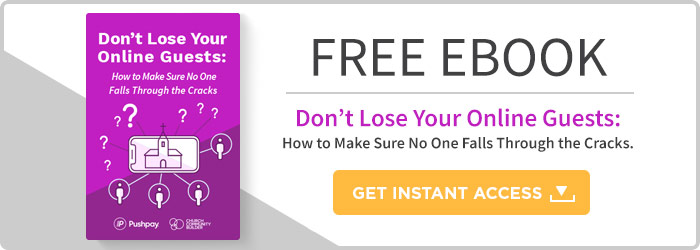How Church Leaders Build a First-Class Community Online
When it comes to technology within our churches, the time isn’t yesterday.
It’s now.
And the online, mobile, and digital spaces aren’t where our “second-tier” efforts should be. A physical church and its digital touchpoints are one—one community, one team, one heart, and one soul.
Sound like a pastor-y thing to say?
That’s probably because our recent podcast guest, Nils Smith, was a student pastor, innovation pastor, social media pastor for 13 years. Now, he’s the Chief Strategist for Social Media & Innovation at Dunham + Company. Previously, he spent 6 years in San Antonio at Community Bible Church, where he was both the Social Media Pastor, and later the Innovation Pastor. The church has well over 10,000 weekly attendees and had 100 online life groups with a growing Facebook community.
With an innovator’s mindset and a pastor’s experience, Nils came on the Nurtured Church podcast to share his insights on how churches can build first-class online communities.
Here’s what he’s learned from his variety of experiences:
As many people begin to connect with your church in the online space, you’ll likely face many of the same questions Nils has had to face over the years:
- “How do we build community and engage with someone who’s watching online from Pakistan?”
- “How do we nurture relationships with Kris, who interacts via their mobile device from another state?”
Nils recommends a shift in perspective first and foremost. It’s not about rigidity in community outreach or about people having to do a certain thing like be at a service in person. It’s about providing various avenues that allow people to jump in where they feel the most connected.
This is a huge paradigm shift for the church. And it’s harder to accept this new reality than it is to act on it. For churches wanting to reach people where they’re at—online—Nils offered a few pro tips:
4 Tactics to Build Online Community:
1: Be very thoughtful about communication
Dissect and consider how your communication is affecting your audience. Sometimes the smallest details can cause a number of issues.
For instance, Nils noticed a major flaw when they were trying to connect people within their small group database: His team was trying to get a variety of details so they could match individuals with the best-fit life group. The problem? The form was too much: It even asked for birthdate, which makes sense, for a database, but who wants to give out that many personal details just to find a Bible study?
2: Train and coach your small group leaders
In San Antonio, Nils focused on training and coaching small group leaders on how to effectively communicate within their groups. His church trained the small group leaders to use weekly emails, coupled with Facebook groups to engage everyone throughout the week.
3: Combine virtual + physical
When you leverage the tech world and the physical, you gain a huge community boost. In the weekly life group example, the Facebook groups were a phenomenal way to engage with the entire group during the week: “Update! My wife got a new job!” “Pray for us as we visit the doctor on Tuesday!” etc.
By the time everyone would meet up for their weekly life group, they’ve already been engaging in each other’s lives throughout the week.
4: Most importantly, listen, listen, listen.
Perhaps the biggest takeaway in building an online community is to listen more. Mostly, pastors (myself included!) are accustomed to 1-way communication. We preach from the pulpit. We send email blasts. It’s easy to get annoyed online by what’s coming at us.
Social media and digital engagement allow for 2-way communication, and a greater chance to listen to members of the community. Contrary to popular sentiment, this doesn’t make it a burden, but an asset when used effectively.
However, it does require more time and more energy.
Final Advice for Anyone Trying to Foster Deeper Connection With Their Congregation:
Here’s the last bit of advice Nils gave to ministry leaders:
- Embrace the internet and don’t hold communication so tightly that you restrict your congregation and their ability to engage with other members and the church.
- The Internet holds so many opportunities around things like Facebook, WhatsApp, Twitter, etc. As God moves in your ministry to advance His Kingdom, your church may extend its border to others within the country and overseas using modern technology. Be ready for it.
To hear more from Nils on nurturing an online church community, click the button below to listen to the full Nurtured Church Podcast episode.
If you don’t use iTunes, you can listen to every episode here.
Featured Content
You May Also Like



